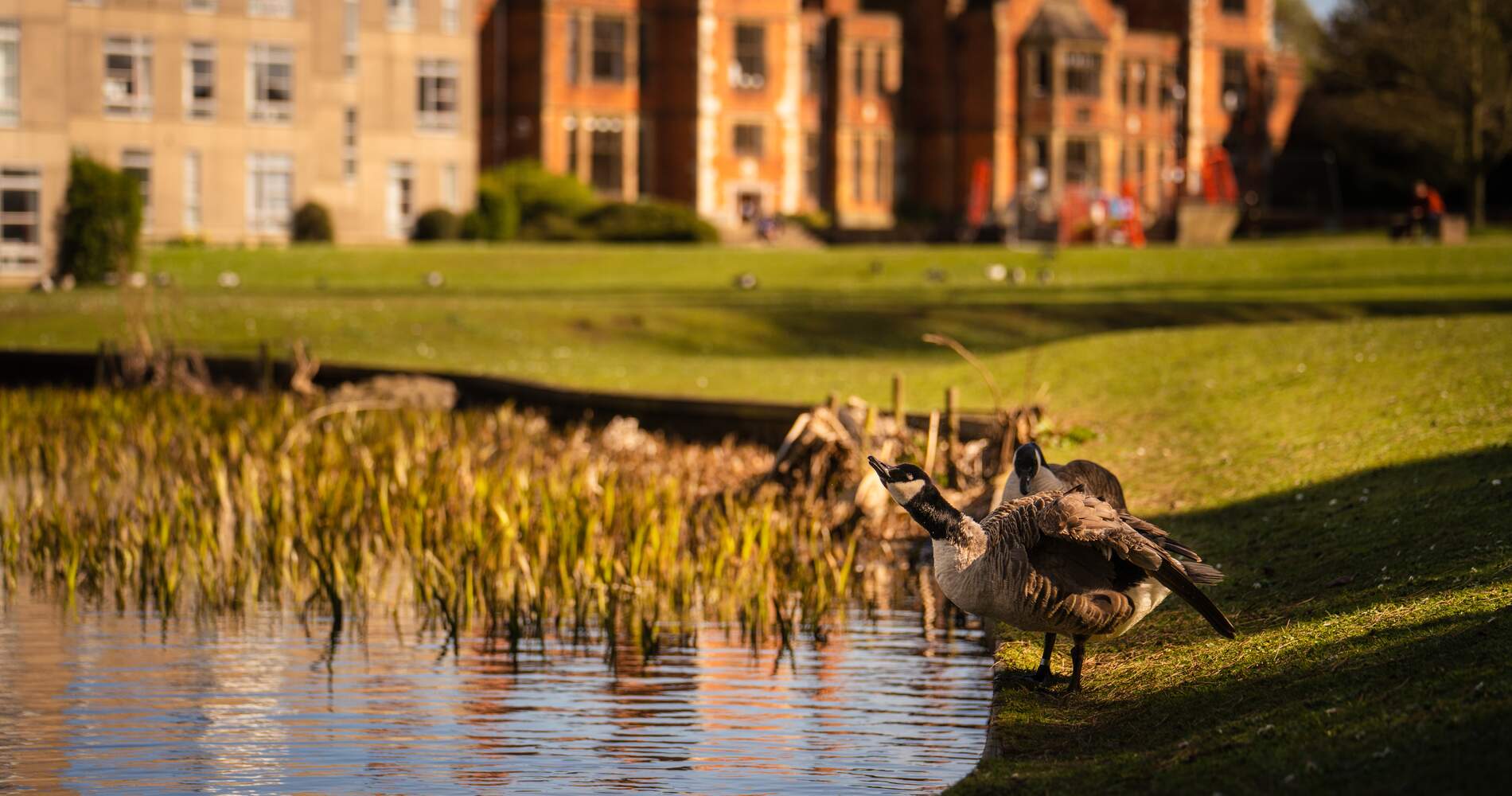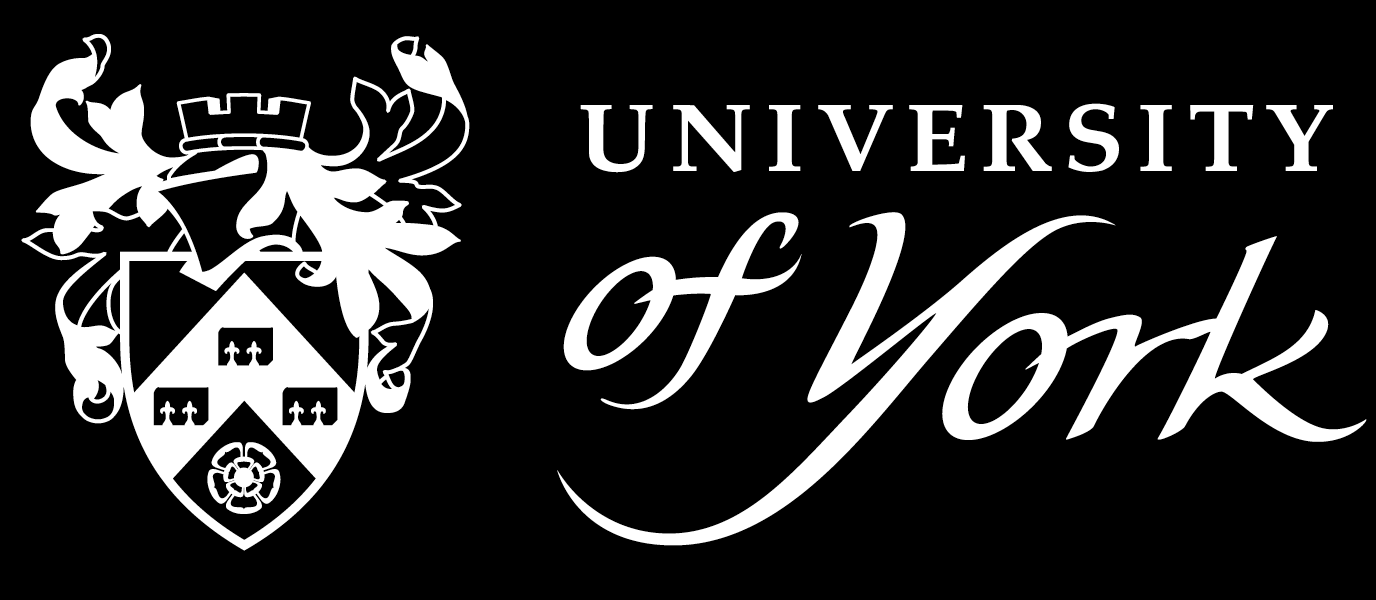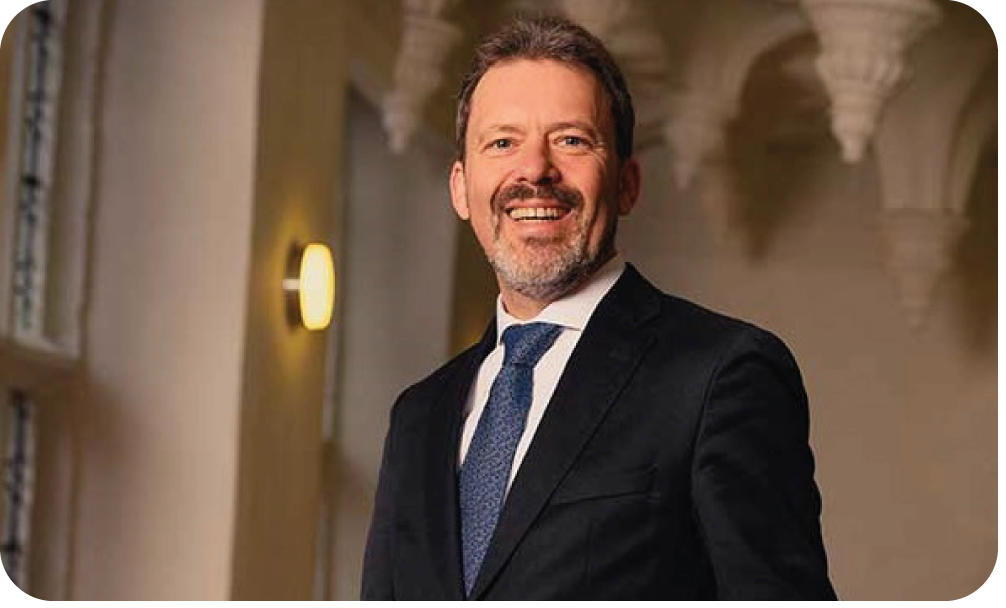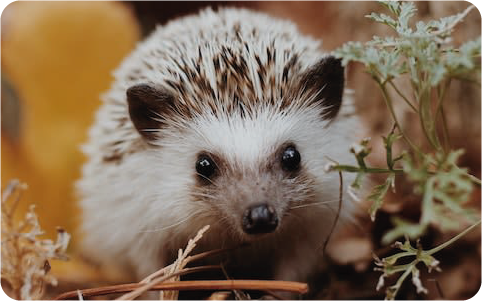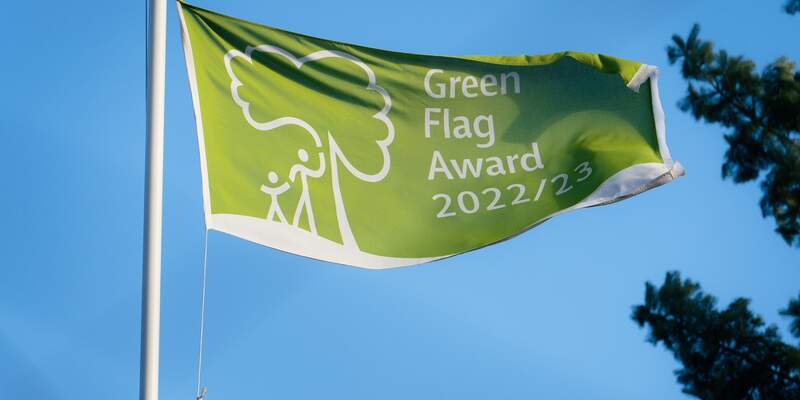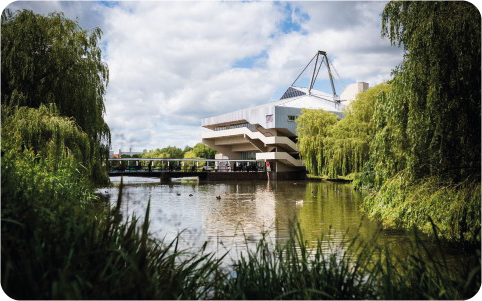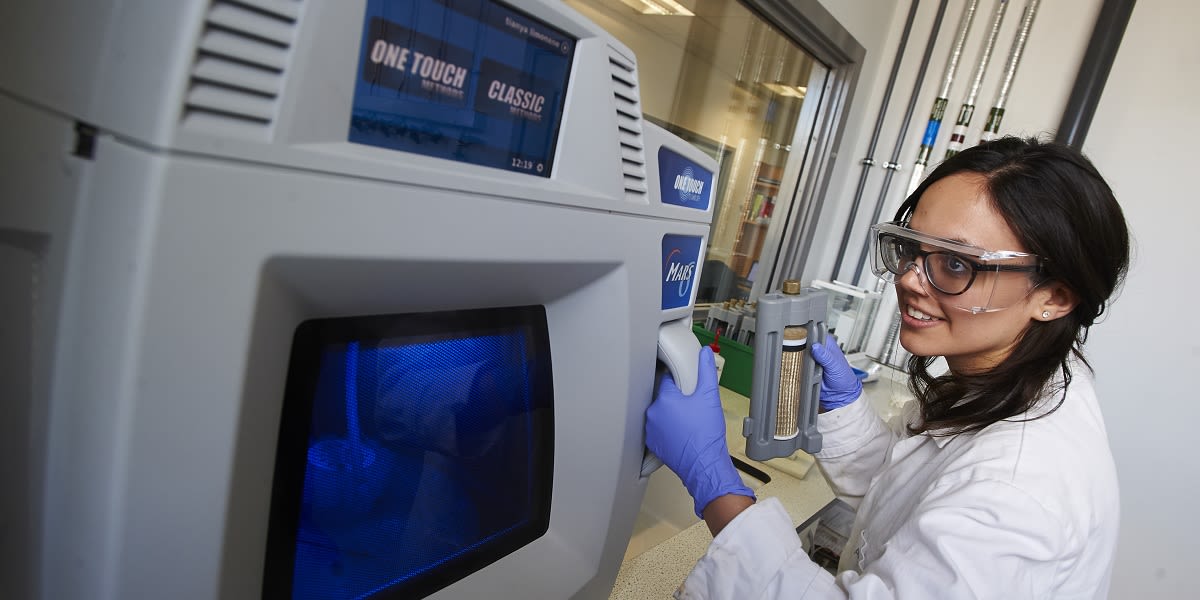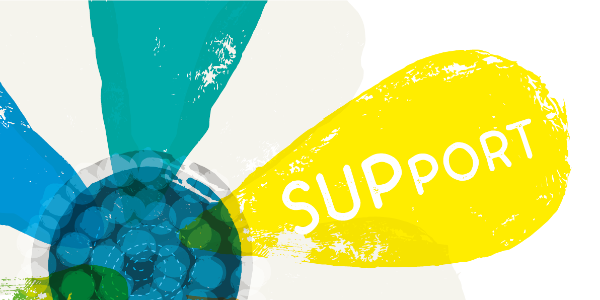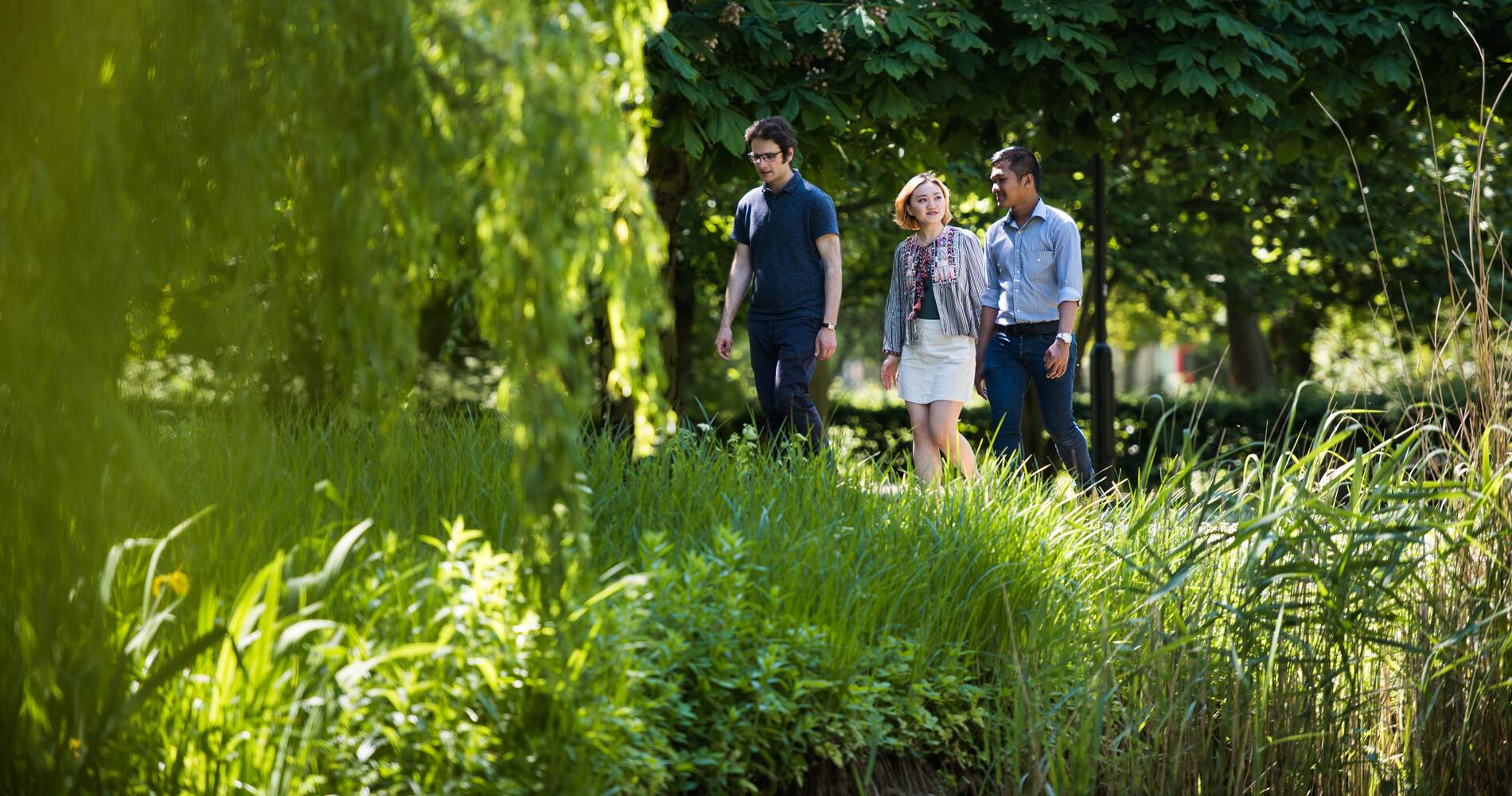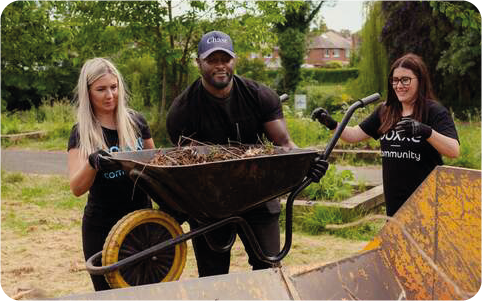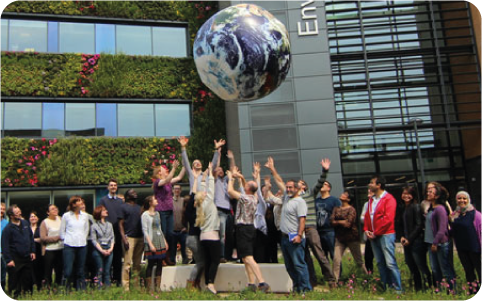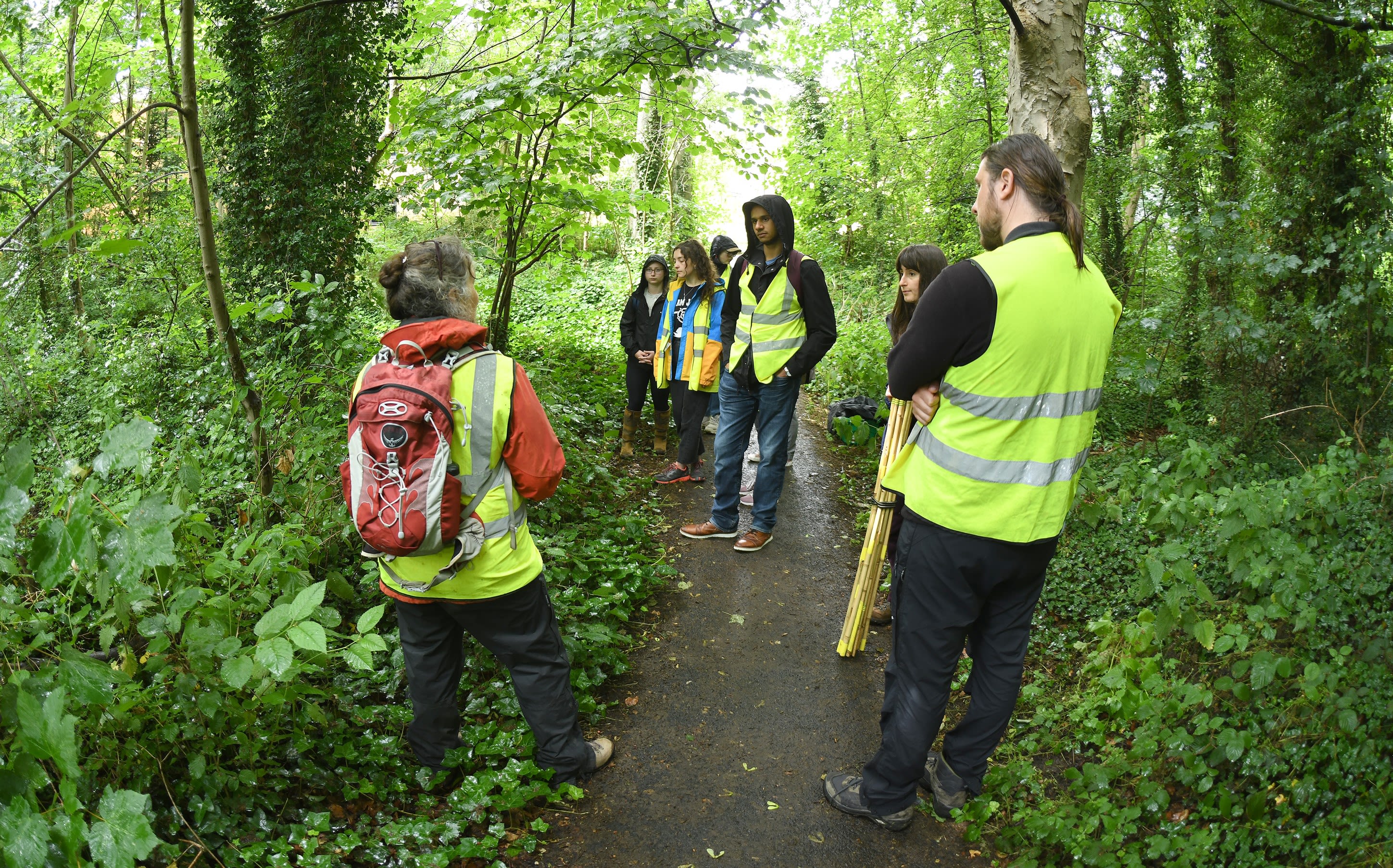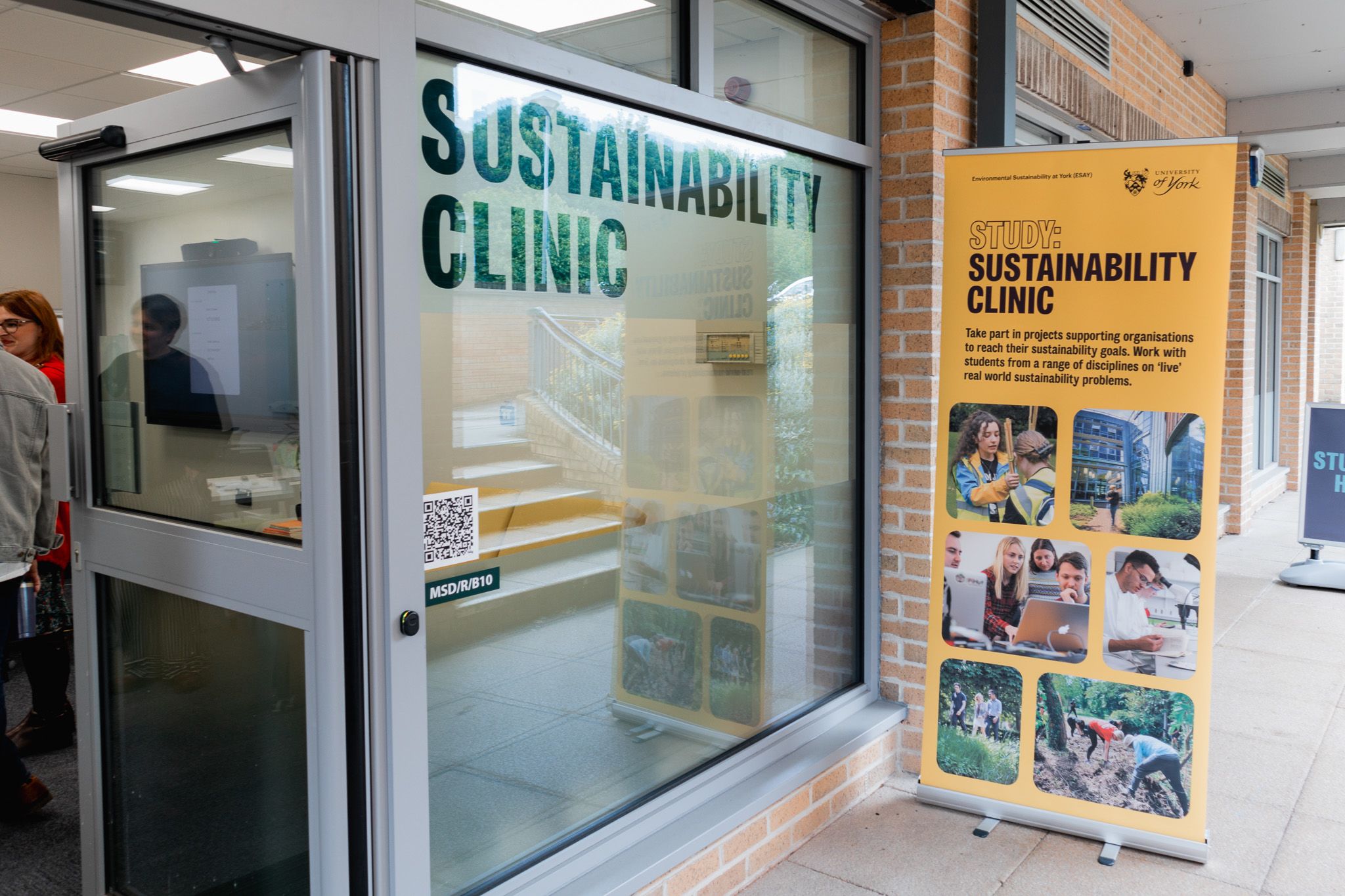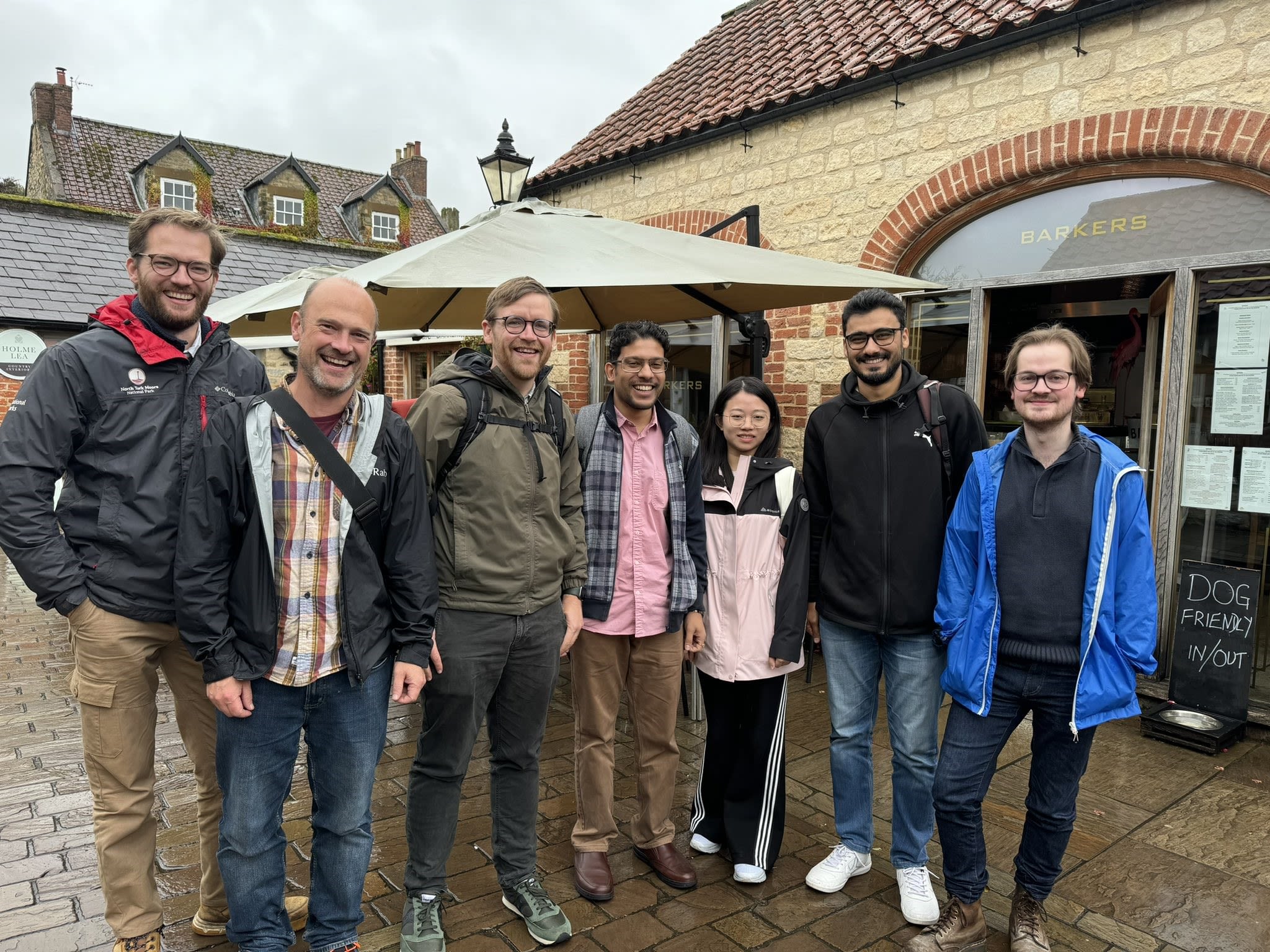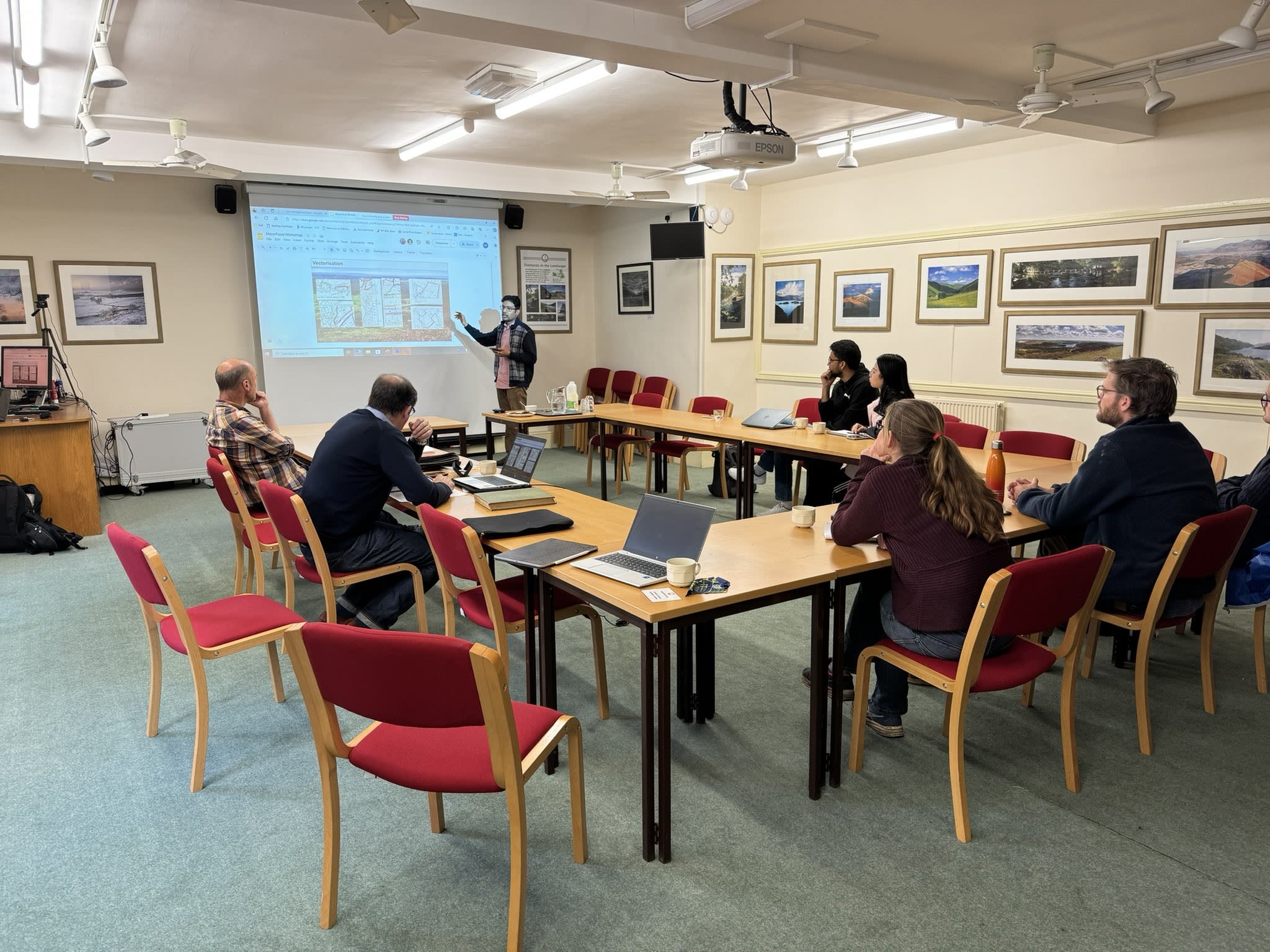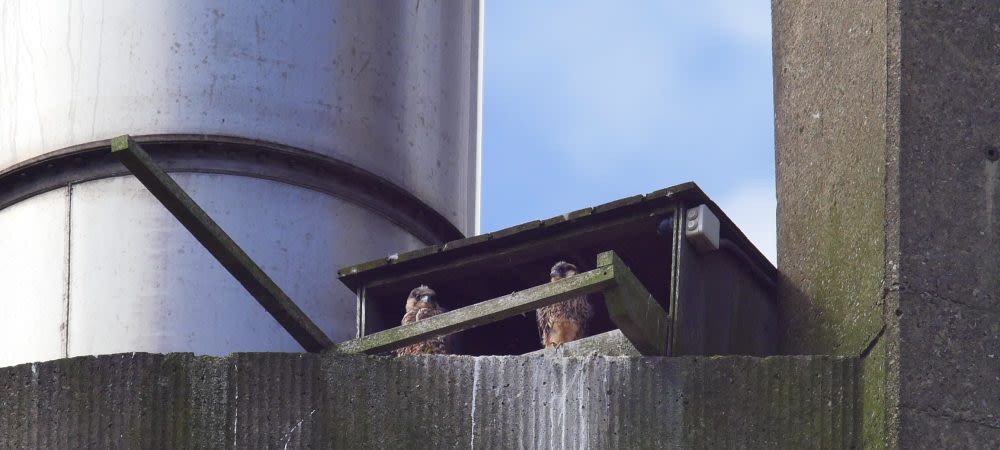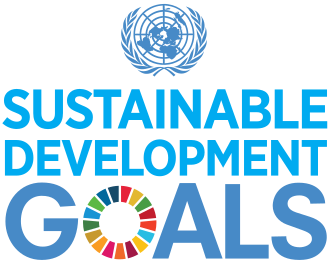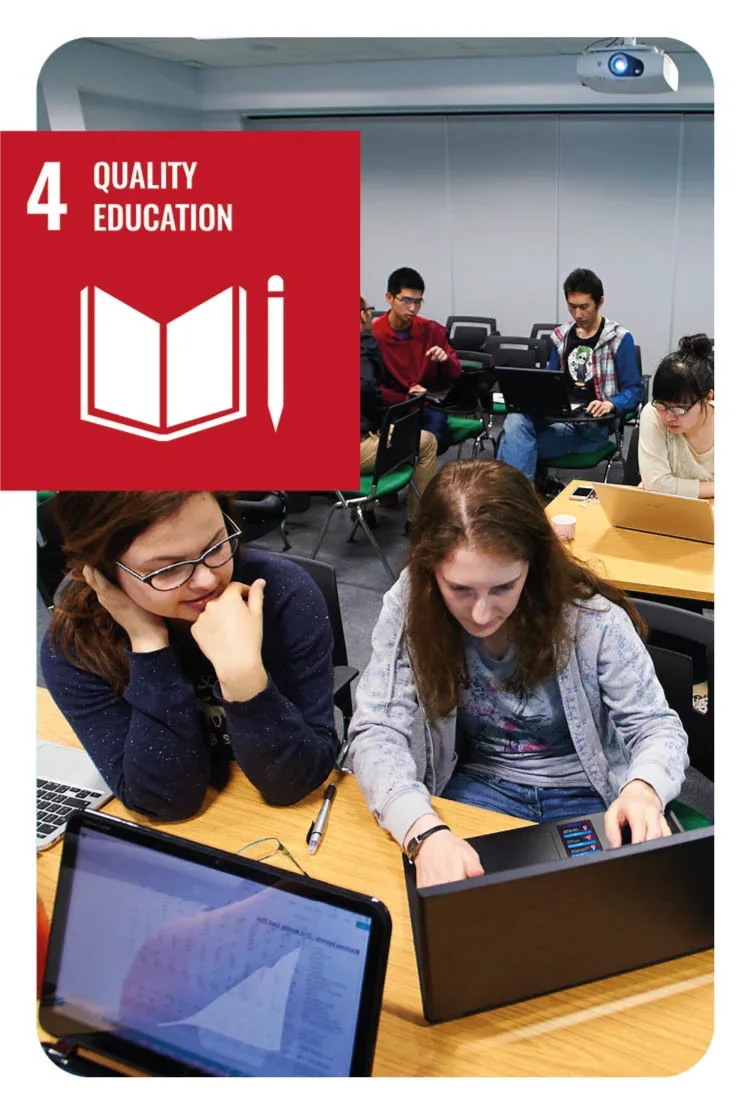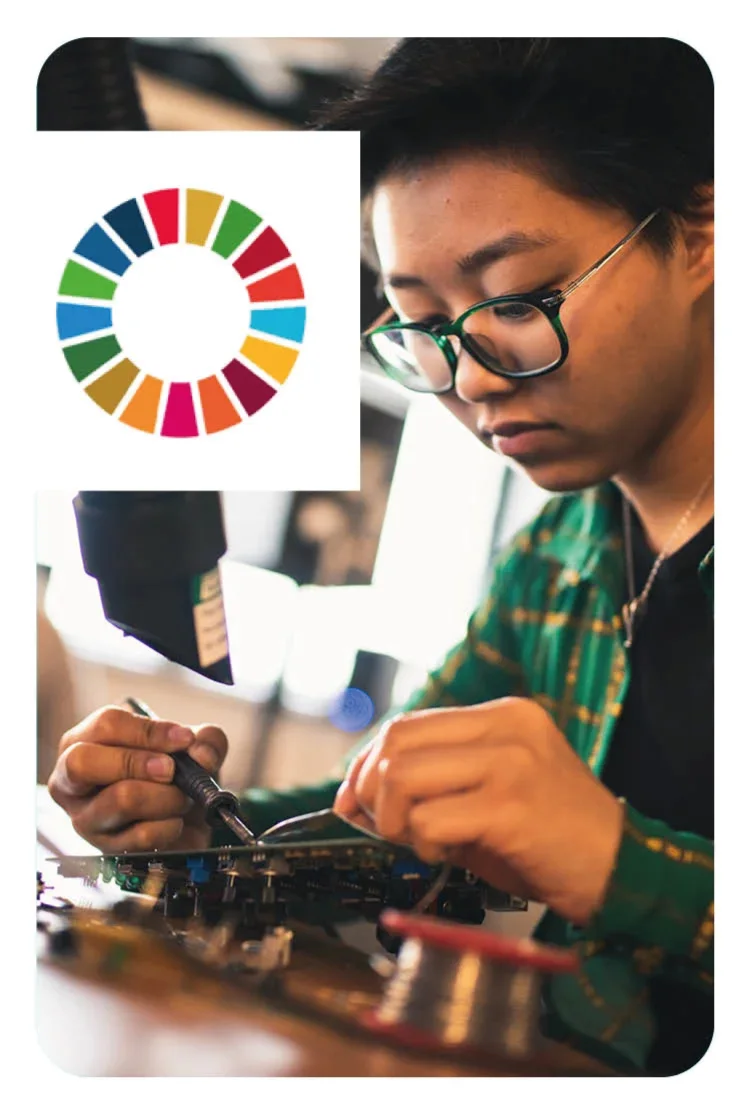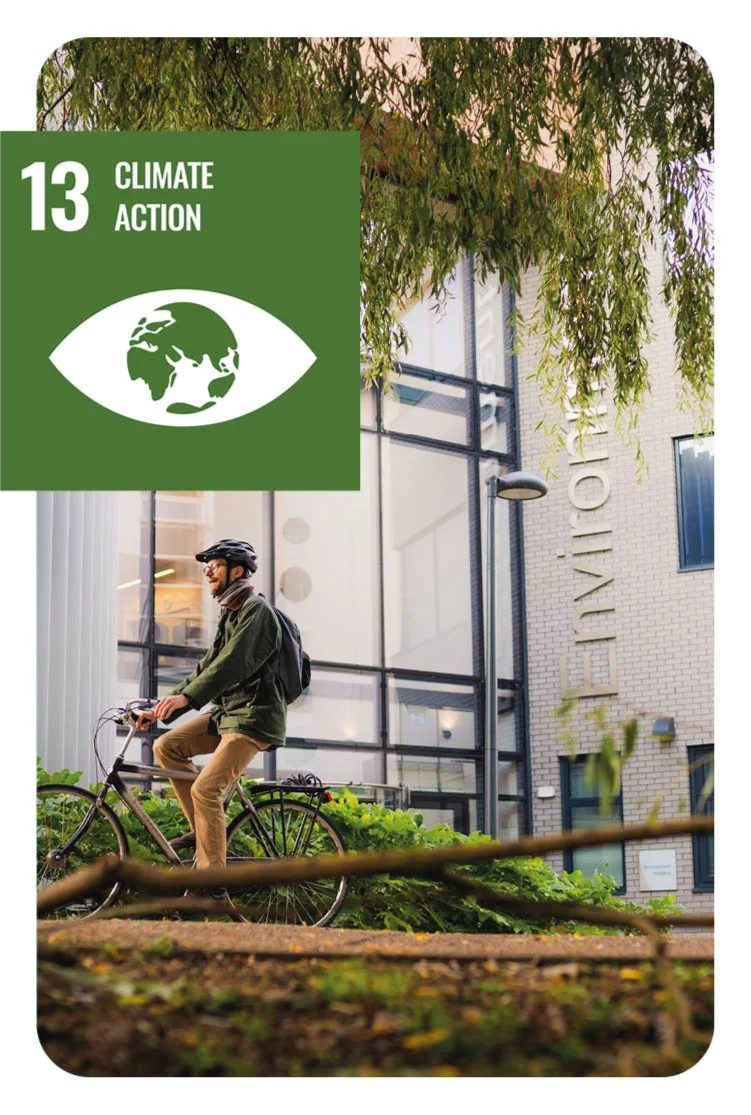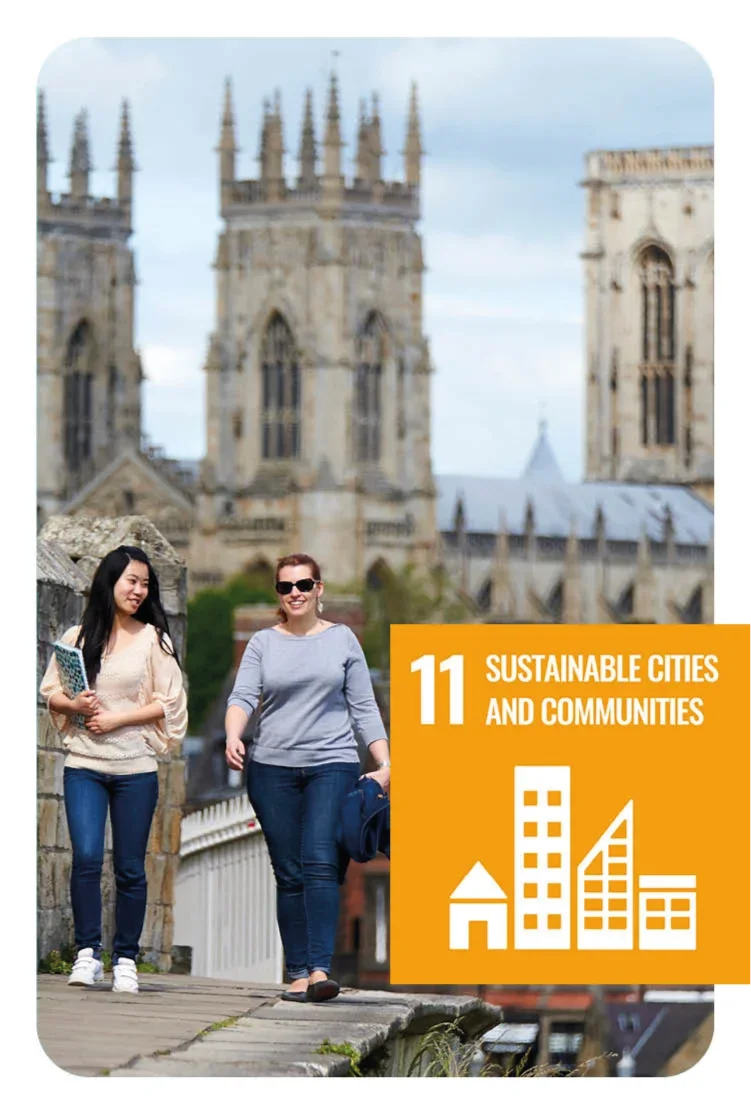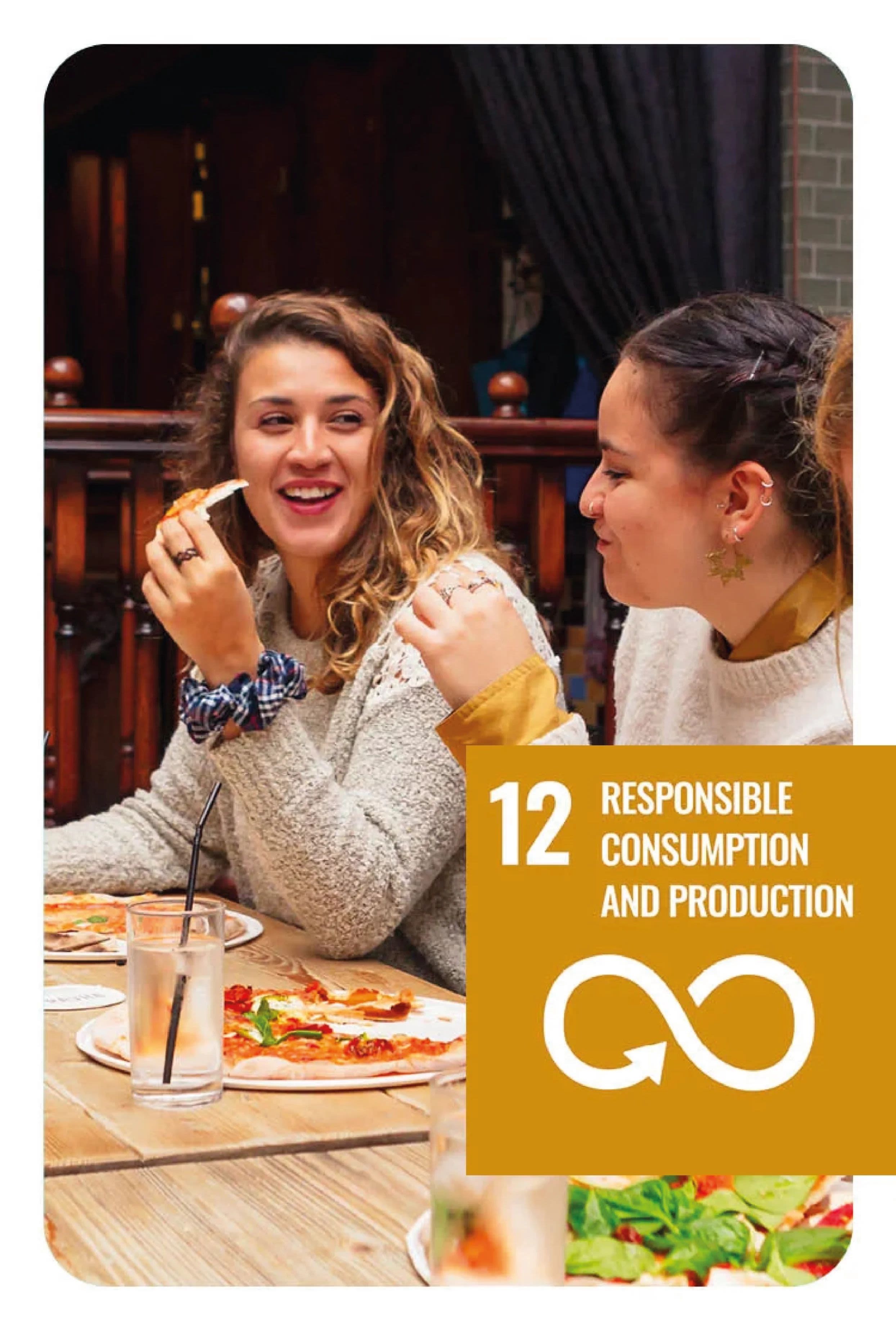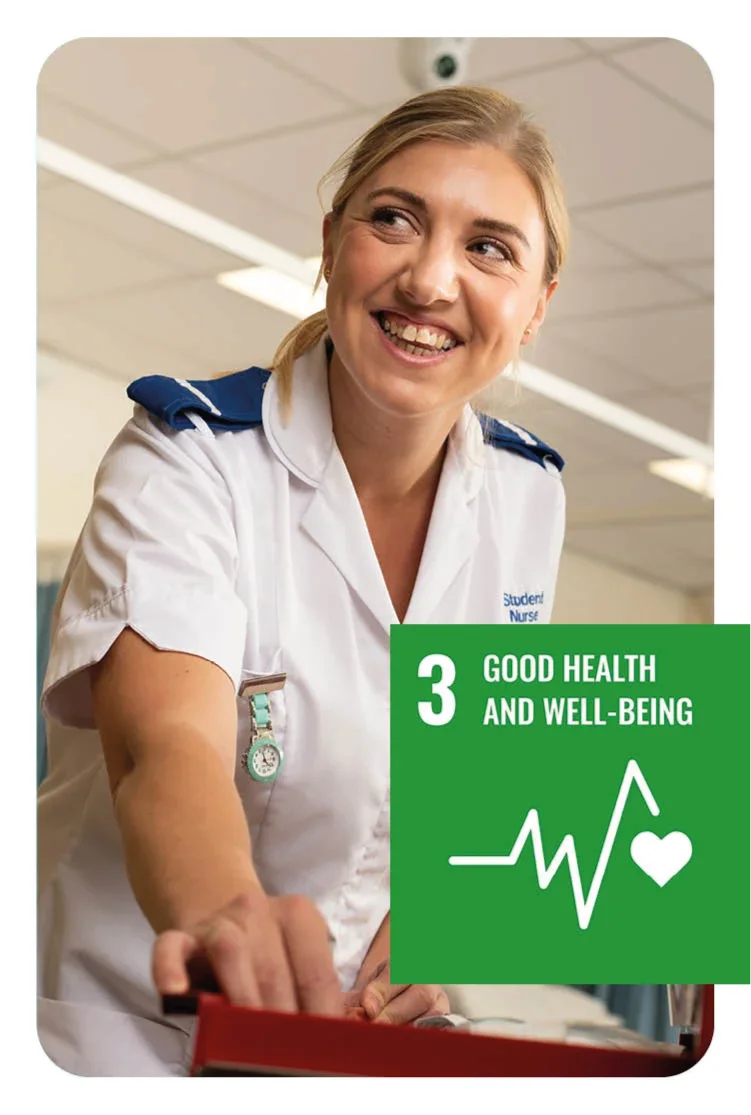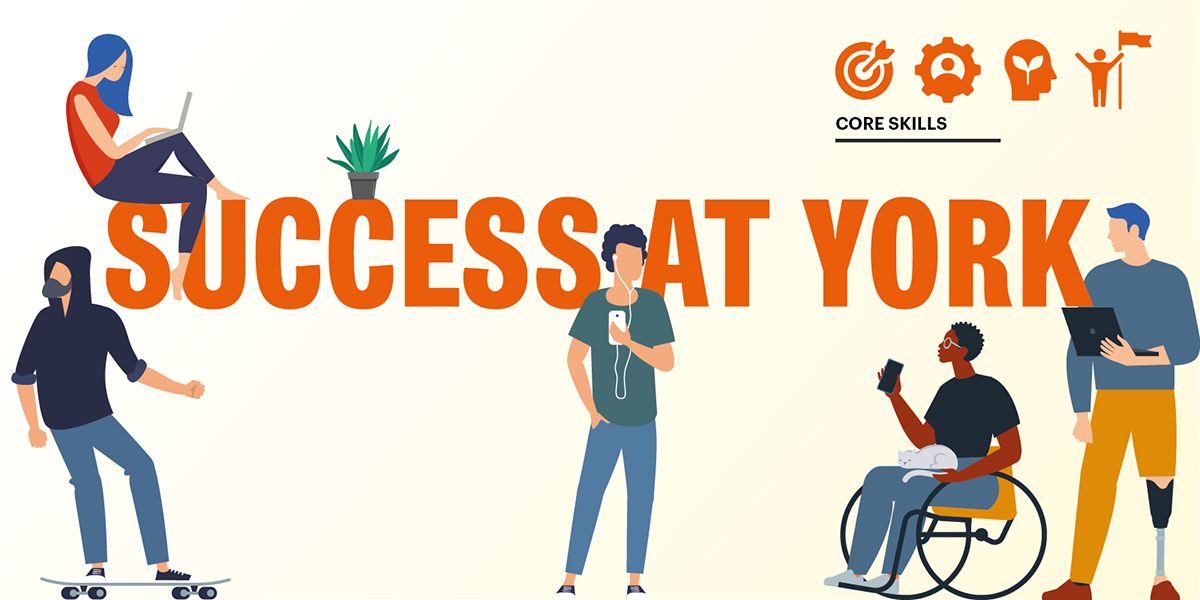SUSTAINABILITY AT YORK 2024
ANNUAL PROGRESS REPORT 2023-2024

INTRODUCTION
Environmental sustainability remains a core principle of the University of York Strategy, and our Sustainability Plan, launched in October 2021, is a testament to this commitment.
As we continue on our sustainability journey, we remain dedicated to transparency and accountability. This annual progress report provides a detailed account of our achievements and the challenges we face. While there is still much work to be done, the progress we have made so far demonstrates the commitment and enthusiasm within our university community to deliver on our promises.
We have continued to further integrate sustainability into our teaching and learning, with the award-winning York Interdisciplinary Modules (YIMS) providing a fantastic example. Available to all students through the Environmental Sustainability Academy at York, these modules are designed to equip students to work collaboratively in multi-disciplinary teams to solve sustainability challenges. Our research efforts through the York Environmental Sustainability Institute have continued to foster interdisciplinary collaborations that address key local, regional, and global challenges. And, of course, we are using our campus – its grounds, buildings and operations – as a living laboratory where research, education, engagement and best practice come together to cut energy use, emissions and waste, foster biodiversity, and provide a healthy and thriving environment for all.
"We remain dedicated to transparency and accountability."
Much of this has been recognised nationally and beyond. For example, our Sustainability Clinic was a Green Gown Award winner for its work in student engagement. The YIMS received an Advanced HE award. Our IT Services Team was recognised by UCISA for a suite of outstanding sustainability initiatives. The core fundamentals are now in place and this will enable us to both be more strategic and ambitious in developing our next programme of engagement and action.
Professor Matthias Ruth, Pro-Vice-Chancellor for Research and Chair of University of York Sustainability Steering Group
ACHIEVEMENTS SO FAR
Prior to and including the 2023-24 academic year we have collectively achieved a number of positives in different areas of sustainability, each playing their role in edging us closer towards our net zero targets.
View our achievement highlights below.
58%
of main waste was suitably recycled in 2023-24. Up by 6% year on year.
3,000+
trees planted on campus grounds in 2023-24
6,459 items
of IT equipment have been saved from landfill since 2020
34,165
meals saved from landfill since 2021 thanks to our 'Shop, Save, Sustain' scheme
11,406
YORCUP scheme members since 2019, increasing by 706 in the last year
£153,815
raised to reinvest in sustainable projects through the Latte Levy since 2019
70,000
single-use plastic cup recycled via our single-use plastic cup waste bins since 2019
£8,520
worth of donations made to local food charities from our Shop, Save and Sustain scheme
100+
participants in Climate Fresk workshops, >20 facilitators trained
337,957
bottles worth of plastic recycled, 315 CO2e saved
58,311
global attendees at York Festival of Ideas in 2023-24, over 251 events and 228,731 website views
110
staff and students undertaking carbon literacy training 2023-24
2,800 people
reached through Green Impact at York actions in 2023-24 with 192 teams participating
AWARDS AND RECOGNITION
HEDGEHOG FRIENDLY
Our campus has once again been awarded Platinum status for being a suitable and safe place for hedgehogs to thrive. We're one of only two universities in the UK with Platinum accreditation.
GREEN FLAG CAMPUS
The Green Flag award is the benchmark national standard for publicly accessible parks and green spaces in the United Kingdom. We've maintained our Green Flag status for 12 consecutive years.
QS RANKINGS
The University of York has been ranked the ninth most sustainable university in the UK and 29th in the world, according to the QS Sustainability Rankings 2024.
THE IMPACT RANKINGS
We ranked highly again in the Times Higher Education Awards.
For SDG 5 Gender Equality we were ranked 4th in the UK and 65th globally.
For SDG 13 Climate Action we were ranked 10th in the UK and 40th globally.
ISO 14001 CERTIFICATION
We continue to work with an environmental management system framework year on year which measures, as well as works to lessen, our environmental impact on the planet.
TIMES HIGHER EDUCATION AWARD 2023
We were nominated for the Times Higher Education Award 2023, thanks to our impactful work on the cost of living and the support and advice given to our student community.
ADVANCE HE COLLABORATIVE AWARD
ESAY awarded the Advance HE Collaborative Award for Teaching Excellence for the development of York Interdisciplinary Modules.
The team work collaboratively across academic disciplines and support teams to develop a suite of modules which provide all students with the opportunity to learn about and work on pressing sustainability challenges.
GREEN GOWN AWARD WINNER
Our Green Gown Award winner 2023 Sustainability Clinic (Category: Student Engagement) has been highly commended at the 2024 International Green Gown Awards.
UCISA AWARD WINNER
UCISA Sustainability award winner for high impact IT initiatives.
- Reducing printers on campus by 40%. Powering down equipment in PC classrooms when not in use.
- Recycling equipment - 44 tonnes saved from landfill.
- Reducing power consumption in data centres by 13%.
- Moving our high performance computing to an EcoDataCentre in Sweden.
PROJECT SPOTLIGHT
YORK LIVING LABS
York Living Labs brings together our University community to work on sustainability problems on campus, and use the campus as a test-bed for sustainability solutions which have wider impact. York Living Labs were set up by Environmental Sustainability at York (ESAY) in 2021, designed to maximise the combined potential of our cutting-edge research, teaching and campus operations, making use of the resources and expertise on our doorstep.
From October 2023 to April 2024, members of the University of York's ESAY Living Labs Biodiversity committee were the driving force behind the community-wide initiative to have York participate in the global biodiversity citizen science project known as the City Nature Challenge. The successful initiative from 26-29th April 2024 involved 26 local and regional nature-based organisations, educational institutions, government agencies and the City of York Council collaborating, with the support of 28 trained University of York undergraduate and postgraduate students as biodiversity citizen science facilitators, to engage the public in making observations of local wildlife on the "iNaturalist" platform.
Given all the community enthusiasm, even though it was York's first year to participate, the city did tremendously well in being #1 out of all the 24 UK participating cities for the total number of species observed (1,481 species)!
With an additional 12,800 observations of wildlife, many of which were on the East and West campuses of the University of York, the data can be used to inform biodiversity and conservation opportunities for action on campus and across the city.
SUSTAINABILITY CLINIC SPOTLIGHT: LOBBYING FOR YORK MINSTER'S GREENER HERITAGE
The Sustainability Clinic is an elective through the award winning York Interdisciplinary Module (YIM) offered in partnership between Environmental Sustainability at York (ESAY), Careers and Placements, and the Department of Environment and Geography. The Sustainability Clinic brings together students and our local community to tackle pressing sustainability issues. In Semester 1, two Sustainability Clinic student groups partnered with York Minster.
About the project
York Minster has worked collaboratively with key stakeholders, including City of York Council and the local community, to create a Neighbourhood Plan. The plan aims to preserve its cultural and environmental value while making it a leader in sustainability for heritage sites. However, achieving this requires further funding and support.
Two student teams were given project briefs that aimed to support York Minster in their advocacy and lobbying work with the national government. Our teams worked collaboratively to research and produce a report outlining the current funding for sustainability in the heritage sector for York Minster to use as an evidence base to lobby the government.
Project outcomes
Our student teams produced two comprehensive reports aimed at enhancing the understanding of current government funding opportunities for heritage sustainability projects, as well as assessing the feasibility of generating additional financing for large-scale, ambitious sustainability initiatives.
The reports included case studies of other heritage buildings in the UK and internationally, highlighting projects they had undertaken to improve sustainability. Going forward, York Minster will use these reports to better understand the funding landscape and to strengthen future applications for government grants.
"I enjoyed making a difference to the sustainability of the York Minster and having an active role within a live sustainability problem. The opportunity provided me with practical experience within sustainability consultancy which has increased my confidence and developed my problem solving skills."
Georgia Lewis, 4th Year Global Development student.
YORK ENVIRONMENTAL SUSTAINABILITY INSTITUTE (YESI) IMPACT
The York Environmental Sustainability Institute (YESI) has a mission to facilitate and deliver world-class collaborative interdisciplinary research on environmental sustainability, co-designed with the researcher community, industry and policy makers. This section of the report will focus on the impact of research activity undertaken through YESI.
YESI Project Spotlight: MoorFood Project
MoorFood, a 2023/24 YESI Knowledge Exchange Fellows project, explored sustainable farming, livelihoods, and ecosystems in the North York Moors by uniting archaeology, historical geography, and environmental management. In partnership with the University of York, the North York Moors National Park Authority, and The National Archives, the project aims to generate new insights into historic landscape changes to inform sustainable land use policy. Supported by the YESI Fellows scheme, MoorFood exemplifies how the scheme fosters collaboration between University of York researchers and external partners to advance environmental sustainability research. A successful workshop brought together stakeholders to explore how historical data, including the National Farm Survey (1941-1943), can help shape future agricultural practices. These collaborative efforts are paving the way for sustainable land management in the region.
Project Spotlight: Air Quality in Homes of Global South Project YESI Knowledge Exchange
The "Air Quality in Homes of Global South" project, part of the 2023/24 YESI Knowledge Exchange scheme, addresses the critical issue of indoor air quality in urban areas of the Global South, where air pollution is a leading health risk. While outdoor air quality has been widely studied, indoor pollution is often overlooked, despite its significant impact on health. Focusing on Kolkata, India—where air pollution levels are 13 times higher than WHO limits—the project explores key indoor air quality challenges through collaboration with local partners, stakeholder engagement workshops, and participatory research with vulnerable groups. Supported by the YESI Knowledge Exchange Fellows Scheme, this project accelerates collaboration between University of York researchers and international partners to advance research in environmental sustainability. The study also invites wider participation for Global South stakeholders to address indoor air quality and improve health outcomes. A film documenting the workshops highlights these efforts to improve indoor air quality in the region.
Project Spotlight: Building Interdisciplinary Research Culture to Tackle Environmental Sustainability Challenges
YESI’s Interdisciplinary Research Training Programme, "Building Interdisciplinary Research Culture to Tackle Environmental Sustainability Challenges: From Novice to Ninja," recently culminated in an exciting Dragons' Den-style pitching session at York’s Guildhall. Supported by Research England, the event showcased the innovative environmental sustainability research projects developed during the programme. Participants spanned all three Faculties and career stages from PhD to Professor. Two standout teams secured seed funding: Team 4 was awarded £4,000 for their project on sustainable financing for agri-ecological landscapes, and Team 3 received £1,000 for their research on urban heat and haze solutions. The training course highlights the vital role of interdisciplinary research in tackling complex environmental sustainability issues and underscores the importance of collaborative efforts and how we can work together in driving innovative solutions. The awarded teams will now continue to develop their projects, contributing to a more sustainable future.
Promoting Biodiversity - Campus Peregrines
Some projects are a long time in the making.
In 2012, a peregrine nesting box was installed on the Central Boiler House Chimney at the University. This year saw peregrines breed for the first time.
STUDENT SUSTAINABILITY OPPORTUNITIES HUB
The Student Sustainability Opportunities Hub was launched in March 2023 to showcase sustainability-related opportunities on offer at the University of York.
Located on the University’s main website, the hub can be used by all students to discover sustainability-related opportunities, from modules and internships to volunteering and events. So far, the hub has showcased a wide range of offerings, such as Climate Fresk workshops, new MSc programmes, York Environment Week, the Big Community Challenge, YUSU’s sustainable development grant, sustainability conferences, and more.
The hub has been designed with students in mind, and will help them to:
• Develop their sustainability skills, knowledge and experience.
• Think about a career in sustainability.
• Go beyond their degree programme with our sustainability-related York Interdisciplinary Modules (YIMs).
• Find work experience opportunities.
• Enjoy sustainability events and workshops on campus.
The hub’s news page features sustainability-related stories, including interviews with students, upcoming opportunities and recent news. It also connects students to our social media channels and to Handshake (our careers platform for students) as a way to cohere and boost existing sustainability opportunities available across the University.
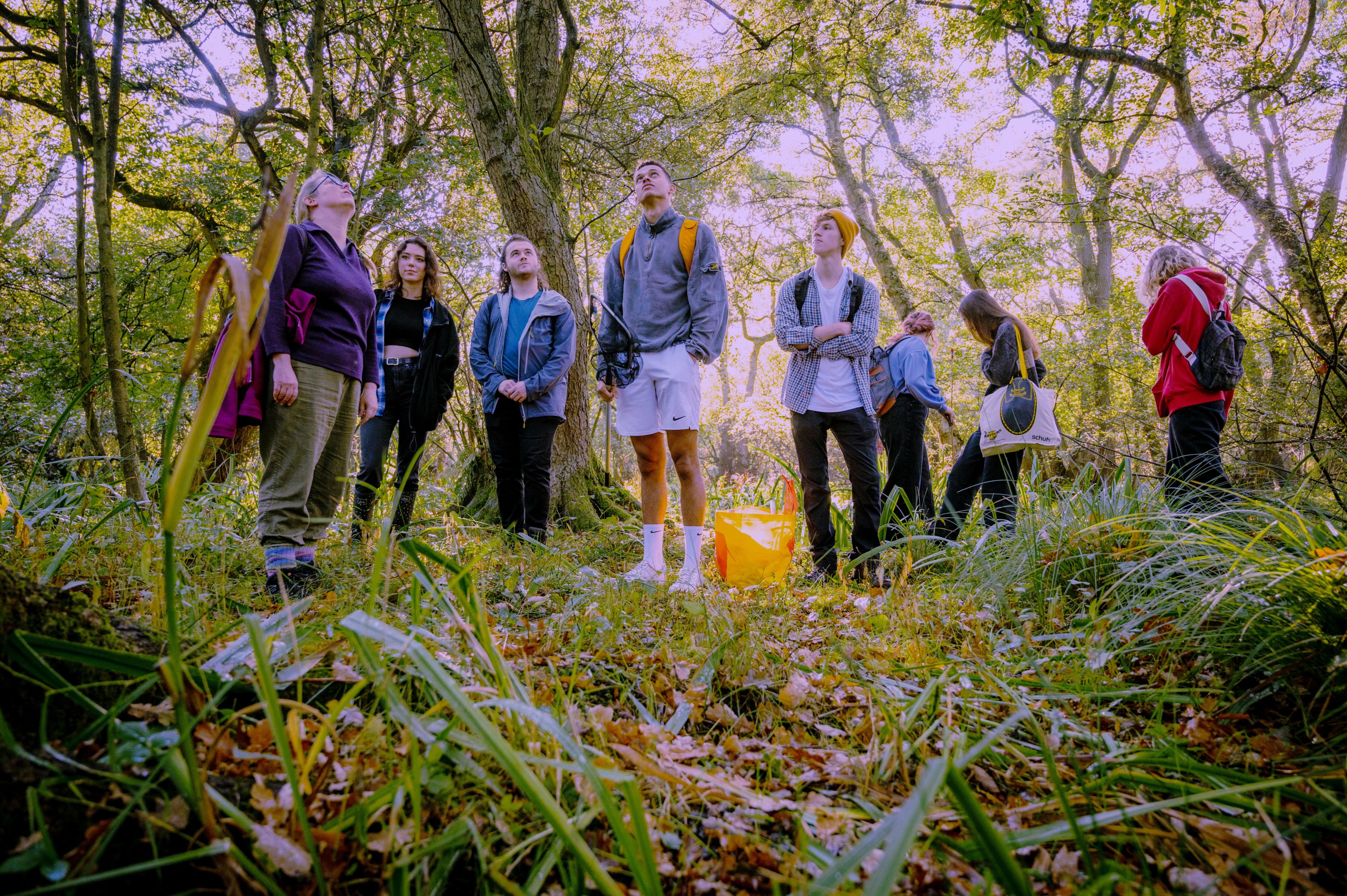
OUR PROGRESS
This section shows our progress against each of our SDG themes’ goals and targets stated within our Sustainability Plan.
We have also highlighted some key elements and metrics which have been achieved within individual areas.
QUALITY EDUCATION
INTERDISCIPLINARY LEARNING FOR SUSTAINABILITY
We offer a suite of York Interdisciplinary Modules (YIMs) open to students from all departments, which includes:
- Future of Food (UG2): Exploring sustainable food systems.
- Climate Crisis Action Lab (UG3): Actionable responses to the climate crisis.
- Sustainability and Policy (UG3): Policy’s role in environmental change.
- Sustainability Clinic (UG3/PGT): Real-world sustainability challenges, open to advanced undergraduates and postgraduates.
These modules received outstanding student feedback and earned the Advance HE Collaborative Award for Teaching Excellence, celebrating innovation in sustainability education.
ADVANCED ENVIRONMENTAL EDUCATION
Our MSc in Environmental Sustainability Education and Communication, which prepares students to lead in sustainability education and advocacy, was accredited by the Institution for Environmental Sciences (IES).
COMMUNITY LEARNING AND AWARDS
York’s Centre for Lifelong Learning hosted a six-week Climate Conversations course, co-taught by staff, students and the Students’ Union, to foster climate dialogue.
GREEN GOWN AWARD
In December 2023, the Sustainability Clinic was recognised for its work in student engagement. The University was up against 14 other finalists for a Green Gown Award and was recognised at an awards ceremony in Liverpool, with guests from across education and sustainability sectors celebrating the exceptional stories and achievements of colleges and universities this year.
York progressed as a finalist for the 2024 International Green Gown Awards as a regional winner and has been highly commended at the awards.
RESPONSIBLE FUTURES AND STUDENT OPPORTUNITIES
In partnership with the Students’ Union, we are successfully delivering the Responsible Futures programme. Nine student interns have already completed an audit of sustainability within York’s programmes across three Faculties.
SUSTAINABILITY OPPORTUNITIES HUB
The Student Sustainability Opportunities Hub was launched and we opened a new Sustainability Clinic space in Market Square.
EARTH DAY CONFERENCE: PLAY FOR THE PLANET
On Earth Day 2023, we co-hosted the Play for the Planet games conference with YESI, highlighting gaming’s role in environmental awareness and creating a network to advance this area.
SUSTAINABLE RESEARCH
FELLOWSHIPS
The YESI Fellows Scheme 2023/24 funded a range of projects:
- 3 Discipline Hopping, 5 Knowledge Exchange and 10 International Fellows projects involving over 13 departments and 37 external partners.
Notable Achievements:
- Dr Helen Davies received a Wellcome Trust Early Career Fellowship for asthma research, bringing together work on indoor air pollution and lung health.
- Dr Anika Haque won the AXA IM Research Award for her work on gendered wellbeing and climate change in Dhaka.
YESI has also delivered several notable events and training:
New interdisciplinary research networks were established including InTREEgue (focused on multiple understandings of trees) and Play for the Planet (looking at how games can support understanding of sustainability). YESI’s Resilient Ecosystems theme was renamed Resilient Socio-ecological Systems, reflecting the growing body of research in York that considers how people and nature shape each other.
COMMUNITY AND COMMUNICATION
The YESI Community has 335 members and has held 39 events.
The YESI newsletter has 626 sign-ups and facilitated impactful opportunities, such as a government secondment for Emilie Stokeld.
CODE OF PRACTICE
The Code of Practice for Sustainable Research is expected to be in place by the end of the Spring Term 2025, along with a range of support packages including:
- the Code itself along with a brief summary of its purpose;
- a series of ‘research personas’ (with associated designs) which will outline the environmental considerations to which different research types/activities relate;
- links to the sustainability podcasts;
- a selection of (optional) materials related to sustainable travel, research design and departmental/centre sustainability dialogues.
The primary aim for the code is to provide a positive/supporting set of guidance.
CLIMATE ACTION
CARBON FIGURES - SCOPE 1 AND 2
Overall, the combined Scope 1 and Scope 2 emissions decreased by 9% against the baseline but showed a slight 1% increase on the previous year.
CARBON FIGURES - SCOPE 3
Scope 3 emissions for 2022/23 were recorded at 82,991 TCO2e, marking a 9% decrease compared to the baseline but a 15% increase on the prior year.
2023/24 supply chain emissions data will not be available until late 2024.
A note on carbon figures and energy generation
In 2023, we opened the Energy Centre on Campus East, equipped with a Combined Heat and Power (CHP) engine. The CHP system generates both heat and electricity using gas, enhancing our energy security, reducing scope 2 emissions and leading to significant financial savings through on-site electricity generation, as opposed to purchasing it from the grid.
While our scope 2 emissions (those related to grid electricity) have been reduced through on-campus generation, the CHP engine’s gas usage has impacted our scope 1 emissions, as this method is less carbon-efficient than previously sourced grid electricity.
Additionally, the rise in scope 3 emissions can be attributed to increased travel and procurement, underscoring the areas where we continue to prioritise sustainable alternatives.
RENEWABLE ENERGY INITIATIVES
Our on-campus renewable energy generation capacity has expanded with the addition of a 90KWp photovoltaic (PV) installation, bringing total campus generation to over 300KWp. This ongoing expansion reflects our commitment to sustainable energy sourcing.
CITIES AND COMMUNITIES
ALUMNI ACTION DAYS
We started offering Alumni Action Days, nature-based volunteering activities for alumni on campus, in York and online in 2023/24. This new initiative is to encourage alumni to take part in activities that benefit their local environment and their own wellbeing. We hosted 3 Action Days and 59 people participated in our activities.
SUSTAINABILITY NEWSLETTER AND A WEB PAGE FOR ALUMNI
We established a web page sharing sustainability-related updates for York alumni in 2023/24.
STOCKHOLM ENVIRONMENT INSTITUTE YORK (SEI YORK) SUPPORTING THE YORK CLIMATE COMMISSION
SEI York are supporting the newly revamped York Climate Commission, which is working to bring together different actors in the city to advance climate action through sharing of knowledge and best practices. Support was given through organisation and facilitation of a day-long event which established a series of Working Groups in January 2024, and now SEI York is providing the secretariat for the group.
FESTIVAL OF IDEAS
- This year, we again broadened the Festival’s reach by partnering with the Australian Broadcasting Corporation's Big Ideas radio programme, which has an estimated 600,000 downloads per month. Their podcast versions of York Festival of Ideas talks are enjoyed by 60,000 regular listeners. The Festival also ran alongside York Pride, which was celebrated by 17,500 people across the city.
CONSUMPTION AND PRODUCTION
The University has established a NET-ZERO FUND to progress projects aimed at reducing our operational carbon emissions.
The University has implemented a responsible investment statement. The statement, which aligns the University's investments in support of the UN's Sustainable Development Goals, explains that York does not and will not invest in companies whose primary activity is tobacco, gambling, adult entertainment or predatory lending.
The University changed investment managers in early 2023, and has chosen to work with an investment management firm who are committed to the UN Sustainable Development Goals and the UN Principles for Responsible Investment. They are part of the world’s largest corporate sustainability initiative (the UN Global Compact), and are a member of Climate Action 100+.
RECYCLING RATE
58% for main waste (6% increase from last year - new main waste contractor)
WASTE GENERATION
Our waste generation for 2023-24 is 2,521 tonnes (24% increase on 2018/19 baseline, 34% increase on last year - new main waste contractor)
WATER USAGE
2022/23 water usage levels were a 26.44% reduction against the baseline usage, with 14.15 m3 per staff and student FTE. Work is ongoing to improve data and reporting in this area.
HEALTH AND WELLBEING
UNIVERSITY MENTAL HEALTH CHARTER
The University has registered to be part of the University Mental Health Charter programme, working towards demonstrable excellence in each of four ‘domains’: learn, support, live, work. The programme provides the opportunity to work with sector partners to develop best practice, while working towards a future application for the charter award.
SUCCESS AT YORK INITIATIVE
Working with academic partners in the Department of Psychology, the Success at York Initiative was launched to empower students to manage and nurture their resilience. Students were encouraged to consider their sense of purpose, resourcefulness, optimism and perseverance, giving them skills not only for their time at university, but in their subsequent lives and careers. Success at York was featured at sector level at the annual AMOSSHE conference.
CHECK-IN
Check-In is a digital student engagement tool to enable the early identification of students who may be experiencing difficulties or facing challenges that impact on their engagement. Check-in not only allows us to promptly reach out and provide support to students who may require additional assistance, it also provides an invaluable insight into the challenges faced by our students at all points of their academic journey. This information can then be integrated into our existing Student Wellbeing Programme to help inform and empower students to manage their mental health and wellbeing.
PROGRESS TRACKER
We've tracked our 2023/24 progress against each of our Sustainable Development Goals (SDGs). Across the 50 goals, 6 have been ‘achieved’, 24 are ‘on track’, 17 are ‘advancing’ and 3 are ‘not started’.
Find a detailed image showing this progress below. Alternatively, you can view the Google Document version of this tracker.
TRACKER KEY
Not started: Some work has been done in these areas, however a formal process or mechanism has not yet been established for achieving the target.
Advancing: A formal process or mechanism has been initiated, but more focused works are required to progress.
On track: A formal process or mechanism has been implemented, and works are progressing to achieve the target.
Achieved: Works are complete and the target has been achieved.
GOAL: QUALITY EDUCATION
1. DELIVER A SUITE OF WIDE-RANGING PROGRAMMES OF LEARNING THAT PROVIDE NECESSARY COMPETENCIES AND EMPOWER STUDENTS TO MAKE A POSITIVE IMPACT ON SUSTAINABILITY.
Target 1a: Implement a suite of training packages, ranging from mandatory training to areas of interest and specialism. Providing tailored levelling up of training provisions resulting in personal certification, ranging from induction training, to overarching carbon literacy, to faculty or department specific packages.
Rating: On track
Target 1b: Establish a range of courses (eg mini-masters) and modules focusing on University of York’s areas of strength in sustainability, incorporating the 'skills for a sustainable future' and 'transformative competencies'.
Rating: On track
Target 1c. Develop a brokerage of local and University-based research projects to support students to undertake dissertations or projects that both enhance sustainability and meet community needs.
Rating: On track
2. PROVIDE ENGAGING AND FOCUSED OPPORTUNITIES OUTSIDE OF TEACHING TO EQUIP STUDENTS WITH PRACTICAL KNOWLEDGE AND EXPERIENCE OF EFFECTIVE SUSTAINABILITY ACTIONS.
Target 2a: Create a suite of key focused initiatives (with collaboration from University of York Students’ Union), that students can actively participate in outside of their formal academic activities, that increase their awareness of sustainability and enhance their employability.
Rating: On track
Target 2b: Increase the availability and accessibility of key non-academic sustainability initiatives to students.
Rating: On track
Target 2c: Learning by sustainable living - development of accommodation blocks dedicated to practising and developing more sustainable lifestyles.
Rating: Advancing
3. LEAD OUR STUDENTS BY EXAMPLE THROUGH ENVIRONMENTALLY SUSTAINABLE TEACHING OPERATIONS.
Target 3a: Provide departments with accountability for implementation of clearly demonstrable sustainability improvements in teaching operations (while still ensuring inclusivity and accessibility), including travel, paper and other resource usage.
Rating: Advancing
Target 3b: Where practical (with consideration of pedagogy, inclusivity and accessibility) move to online digitised processing of assessments including student submission, marking, feedback, marks administration and exams.
Rating: Advancing
SUSTAINABLE RESEARCH
4. CREATION OF A NEW ENTITY THAT ACTS AS A FLAGSHIP FOR GLOBALLY-RECOGNISED RESEARCH AND TEACHING ON ENVIRONMENTAL SUSTAINABILITY.
Target 4a: Establish a new sustainability entity
Rating: Achieved
Target 4b: Code of practice for sustainable research fully implemented, with key performance indicators developed and demonstrating a reduced environmental burden of research activity to complement carbon and broader sustainability targets of the University strategy.
Rating: On track
Target 4c: Enhance research capacity across the University's research portfolio to establish and reinforce global leadership in key areas of environmental sustainability.
Rating: On track
Target 4d: Develop transformational competencies to maximise opportunities for our research on environmental sustainability to make an impact for the public good.
Rating: On track
Target 4e: Develop innovative ways of research practice and funding to establish York as an internationally renowned 'go-to' resource for research of relevance for policy and practice on environmental sustainability.
Rating: On track
CLIMATE ACTION
5. MINIMISE THE IMPACT THAT UNIVERSITY OPERATIONS HAVE ON CLIMATE CHANGE BY BECOMING CARBON NEUTRAL IN ALL ACTIVITIES.
Target 5a: Carbon net-zero for Scope 1 and 2 carbon emissions by 2030.
Rating: Advancing
Target 5b: Reduce indirect (Scope 3) carbon emissions by 30% by 2030 against 2017-19 average baseline data.
Rating: Advancing
Target 5c: Carbon net-zero for direct and indirect (Scope 1, 2 and 3) carbon emissions by 2050.
Rating: Advancing
6. CREATE A CAMPUS ESTATE THAT IS LEAN AND AGILE TO EFFECTIVELY ADAPT TO CLIMATE CHANGE, ADDRESSING THE RISKS AND OPPORTUNITIES IT WILL PRESENT TO THE UNIVERSITY.
Target 6a: Creation of a Climate Change Adaptation plan to feed into existing policies and processes.
Rating: On track
Target 6b: Implement technical climate change considerations into University building and campus grounds design standards, to reduce negative impacts and realise opportunities resulting from climate change for estate operations and student experience.
Rating: Advancing
Target 6c: Implement strategic climate change considerations into Campus for the Future and space usage policies to deliver an estate that is sufficiently agile to react to the future changes in climatic conditions, preventing them from negatively affecting facilities for delivering teaching and research services.
Rating: Not started
Target 6d: Implement climate change considerations into continuity planning to address operational interruptions caused by climate change impacts.
Rating: Advancing
7. BE A LEADING EXAMPLE FOR ECOLOGICAL MANAGEMENT, DEMONSTRABLY IMPROVING BIODIVERSITY ON CAMPUS AND IN THE LOCAL REGION FOR THE BENEFIT OF NATURE, CAMPUS USERS AND THE LOCAL COMMUNITY.
Target 7a: Carry out a broad spectrum ecological survey of the campus (east and west).
Rating: Achieved
Target 7b: Identify, set and achieve a biodiversity net gain improvement target based on a baseline (identified through initial ecological survey).
Rating: On track
Target 7c: Identify and purchase a suitable piece of land off campus locally upon which to begin planting a new managed woodland of up to 50,000 trees, to complement the Northern Forest initiative.
Rating: Advancing
SUSTAINABLE CITIES AND COMMUNITIES
8. TO BE INSTRUMENTAL IN THE DEVELOPMENT OF STRUCTURED COLLABORATION AND EMPOWERING PROCESSES AND ALLIANCES WITHOUT OUR CITY AND COMMUNITY TO ACHIEVE CLIMATE NEUTRALITY FOR THE REGION.
Target 8a: Map the key interactions and interplay of the targets we share with our strategic partners to support achievement of carbon neutrality for the region by 2030.
Rating: On track
Target 8b: To identify and understand issues related to the development of low carbon pathway in our community and to focus our research firepower and institutional professional service expertise on exemplar challenge tasks to resolve them.
Rating: Advancing
Target 8c: Implement a series of shared community action plans to engage and facilitate community Climate Actions.
Rating: On track
9. IDENTIFY, EMPOWER AND FACILITATE DEVELOPMENT OF AMBITIOUS SUSTAINABLE SOLUTIONS TO CIVIC-BUSINESS AND COMMUNITY-LED CHALLENGES.
Target 9a: To align with the Civic Mission ‘social action’ workstream in development of policy and guidelines for academic and professional service staff to actively engage with community-led volunteering opportunities.
Rating: On track
Target 9b: Develop and showcase circular economy trials and example initiatives.
Rating: Advancing
Target 9c: To develop integrated partnerships with education providers to position York as a Learning City that encourages sustainability knowledge and actions for all potential learners, re-learners and graduates, providing opportunities for communications, and shared public engagement, across diverse audiences.
Rating: On track
10. IDENTIFY, EMPOWER AND FACILITATE DEVELOPMENT OF AMBITIOUS SUSTAINABLE SOLUTIONS TO CIVIC-BUSINESS AND COMMUNITY-LED CHALLENGES.
Target 10a: Creation of a formal plan detailing areas/facilities and digital spaces that are accessible and available to the wider community, increasing their use year on year, ensuring that all key University public engagement events, and communications channels are used to disseminate to and engage diverse audiences.
Rating: Not started
Target 10b: Increase access (wider and better) to cultural assets owned by the University and enhance opportunities for continued partnership programming, commissioning and curation of student/community art, with widespread programming, dissemination and promotion support through the York Festival of Ideas.
Rating: On track
Target 10c: Match the future development and promotion of the University's cultural, sports and leisure offer to complement wider city provision and to ensure that university public engagement programming and strategic engagement offer collaborative opportunities for co-curation, co-design and co-delivery.
Rating: Not started
CONSUMPTION AND PRODUCTION
11. ENSURE THAT OUR UNIVERSITY INVESTMENTS GENERATE A POSITIVE SUSTAINABILITY IMPACT.
Target 11a: Invest 50% of endowment investments (in terms of value) through impact investment.
Rating: Advancing
Target 11b: Establish an internal sustainable investment fund for sustainability.
Rating: Achieved
Target 11c: Operate and grow (by tenfold) an internal self sufficient investment fund for sustainability.
Rating: Advancing
12. PROACTIVE MONITORING OF SUSTAINABILITY FOR ALL KEY SUPPLIERS, AND WORKING WITH THEM TO IMPROVE THEIR SUSTAINABILITY.
Target 12a: Identify the most significant 100 suppliers (by value/impacts/volume) and undertake a formal baseline sustainability assessment of them.
Rating: On track
Target 12b: Undertaking annual reviews on most significant 100 suppliers (by value/impacts/volume) to ensure that they are improving their sustainable performance.
Rating: Advancing
Target 12c: Ensuring all service suppliers implement a real living wage.
Rating: On track
13. BECOME A NATURAL RESOURCE EFFICIENT UNIVERSITY, MINIMISING THE AMOUNT WE CONSUME WHILE REDUCING THE IMPACT OF OUR WASTE CREATION.
Target 13a: Reduce waste volumes from campus by 33% (by weight). [10% reduction by 2025]
Rating: Advancing
Target 13b: Increase waste recycling rates to 80% by weight [70% recycling by 2025].
Rating: Advancing
Target 13c: Increase water consumption efficiency to provide a 25% reduction per FTE staff and student against baseline usage (average of 2017-18 and 2018-19 usage figures).
Rating: On track
HEALTH AND WELLBEING
14. WORKING TOGETHER AS A WHOLE UNIVERSITY COMMUNITY TO DELIVER THE AIMS OF THE STUDENT MENTAL HEALTH AND WELLBEING STRATEGY.
Target 14a: Deliver a Student Wellbeing Programme throughout the academic year, focusing on times of higher risk in the student journey and delivering a range of responses.
Rating: Achieved
Target 14b: Embed the Student Wellbeing Officer roles within departments, and develop this role to provide support (to both staff and students) with student welfare and wellbeing needs.
Rating: Achieved
15. OFFER NEW, ACCESSIBLE APPROACHES TO HEALTH AND WELLBEING FOR STAFF IN THE WORKPLACE.
Target 15a: Incorporate health and wellbeing activities and provisions into departmental staff events.
Rating: On track
Target 15b: Provide an enhanced range of staff mental health training and enhance the Mental Health First Contact network.
Rating: On track
Target 15c: Accreditation with the real Living Wage Foundation and a range of improvements to the pension provision for the lowest paid staff.
Rating: Achieved
Target 15d: Strike an improved work-life balance for staff through expansion of relevant policies.
Rating: On track
16. PROVIDE A CAMPUS ESTATE THAT SUPPORTS THE MENTAL AND PHYSICAL WELLBEING OF ITS USERS BY RECOGNISING THE TANGIBLE BENEFITS OF THE BUILT AND NATURAL ENVIRONMENT AND OUTDOOR ACTIVITY.
Target 16a: Actively develop the campus grounds as a tool to boost health and wellbeing activity.
Rating: On track
Target 16b: Formally incorporate health and wellbeing of occupants into the design considerations of future building projects.
Rating: Advancing
Target 16c: Provide access to sporting facilities for a range of sporting abilities to engage with, in order to promote the impact of physical activity, sport and wellbeing within an ‘active campus’.
Rating: On track
HOW TO GET INVOLVED
We all have a role to play in reducing our impact and creating a sustainable University. Collectively all of our small steps add up to significant action. During the 2023/24 academic year there will be even more opportunity for all University staff, students and stakeholders to get involved as we develop a brand new Sustainability Engagement Plan that coordinates and increases the mechanisms in which you can input through action, feedback and awareness. Below are 10 practical ways that you can take action and support now:
- Become an active member of a Green Impact Team
- Undertake Carbon Literacy Training
- Attend Climate Fresk workshops
- Participate in College Sustainability Challenge (formerly Student Switch Off; student accommodation)
- Ensure that sustainable options are prioritised as part of any change in your work activities
- Suggest (and look to implement) opportunities for improving sustainability in your specific area of work to sustainability@york.ac.uk
- Increase usage of alternatives to the car (public transport / walk / cycle) to commute to work
- Sign up to and utilise the equipment reuse schemes WarpIt and UniGreenScheme
- Sign up to the sustainability newsletter
- Generally be an advocate and champion for sustainability in your work area.
sustainability@york.ac.uk
york.ac.uk/sustainability
Follow us on social media: X (formerly known as Twitter) or Facebook.
